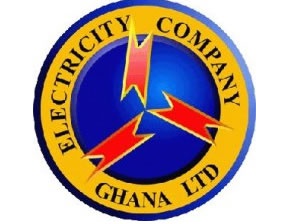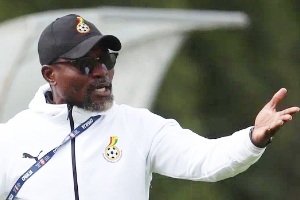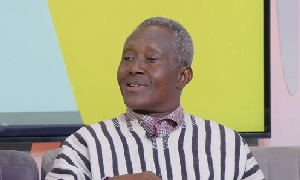The Ashanti Regional branch of the Electricity Company of Ghana (ECG), Ghana’s leading supplier of power, is in a critical situation, as the company battles to retrieve a whopping amount of GH¢92 million from clients and consumers of power in the region.
The amount involves debts owed the company as at the end of February 2015 by individuals, public agencies and firms, who have either refused to pay or have been playing hide and seek with the energy supplier in its quest to retrieve the debts.
The company is, therefore, warning of dire consequences, including the likelihood of customers sleeping in darkness for a very long time, if clients owing the company refuse to settle their debts to enable the management embark on investment to meet the ever-increasing demand of electricity in the country.
What appears to have compounded the problems of the power supplier is the unfortunate situation whereby clients issue bounced cheques to the company. The National Director for Network Project, Ing. Samuel Boakye-Appiah, who sounded the caution in an exclusive interview with The Chronicle, said the company was currently choking under intense pressure to replace worn out machines, which continue to experience dilapidation as a result of the constant power fluctuations, and also embark on operational expansions.
Mr. Boakye-Appiah warned that in the event that the company fails to recover the debts and plough the funds back into major investments, it may not be able to serve its customers effectively and efficiently, even if there is an increase in generation capacity.
“The fact is that we need money to invest; replace worn out equipment and increase network operations, if these debts are not recovered, we are likely to face a situation whereby VRA and other distributors will generate the power, but our system will not be effective enough to contain it,” he lamented.
According to him, the constant trips in power as a result of the load shedding has had serious impacts on operational equipment, and this, he said, was likely to affect the lifespan of some of the machines, which eventually affects power delivery to the final consumer.
He noted that apart from the direct impact the situation was having on the company, the inability of the ECG to recover debts from clients also affects the general supply chain, since the company would have to pay power generators such as the Volta River Authomity (VRA) and other outlets for services delivered.
The Director for Network Project, therefore, said it was for this reason that the company is embarking on a nationwide debt recovery programme and disconnection exercise, as part of efforts to raise funds for its operations. He further noted that the company has additionally commissioned a special task force to deal with customers who engage in self-reconnection after they have been disconnected of power for nonpayment of bills.
Stressing that the exercise was a sustained one involving various strategies, including use of dialogue, negotiations and legal actions, Mr. Boakye-Appiah said the company would leave no stone unturned in its quest to recover all debts from recalcitrant customers.
“We are taking a holistic approach to this situation, because it is one of the major issues threatening the very survival of the company. We want to state emphatically that this exercise is not in any way linked to the load shedding. The ECG is not Father Christmas, and cannot supply power without people paying for it,” he stated.
PROSECUTION OF DEFAULTED CLIENTS Mr. Boakye-Appiah said the company’s efforts at recovering debts from customers through the legal process was yielding outcomes, as many defaulters moved to avoid court drilling by paying their debts. He cited specifically, the Commercial Court located at the Prempeh Assembly Hall, which, he said, had supported the ECG by expediting action on cases brought before it.
According to him, about 500 customers had, since October last year, been sent to court, whilst dockets of others are currently being processed for the court.
DISCONNECTED SLT CUSTOMERS WITHOUT RESPONSE TO PAY
The Director for Network Project, however, pointed out that whilst some clients, after being disconnected, have been responding, others have out rightly refused to engage the company towards clearing their debts.
The company produced about eleven individual clients, made up of production firms, which owe large sums of monies but have refused to respond positively. He said these companies, categorised under the Special Load Tariffs (SLT) class, have accumulated debts totaling several millions of Ghana cedis. The eleven companies and their specific debts in cedis were given by the ECG as follows.
KAS PRODUCT- 239,414.15, FABI TIMBERS- 513,748.80, FARES TIMBERS-65,786.95, JOLLY WORLD COOL- 39,060.21, NAACHIA QUARRY-104,681.05, CAESAR IYAYI- 86,399.31, ADU-2 STONE QUARRY- 96,206.32.
The rest are JERUSALEM AGRIC INVT- 30, 213.03, DAS CONTINENTAL FARM- 19, 861.90, BROSA MINERALS 67, 053.44 and KUMASI WOOD ESTATE- 20,776.83. These companies, according to the ECG, have not made any efforts at offsetting their debts since they were disconnected of power.
WAR AGAINST FILLING STATIONS, HOTELS
Mr. Boakye-Appiah also revealed that the company would soon launch operations against petrol filling stations and hotels which have also defaulted in the payment of bills.
He said several fuel stations, hotels, guest houses and lodges dotted across the city have also refused to pay their bills, despite persistent reminders, and this, he said, would soon be made public after the compilation of the list.
General News of Saturday, 9 May 2015
Source: The Chronicle
Ashanti ECG chases customers for GH¢92m debt

















